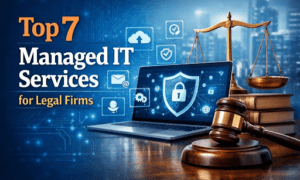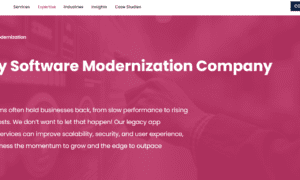In today’s fast-paced digital landscape, businesses of all sizes are increasingly relying on technology to streamline operations, enhance productivity, and gain a competitive edge. However, managing and maintaining an efficient and secure IT infrastructure can be a daunting task, especially for organizations without dedicated in-house IT resources. This is where Managed IT Services come into play, offering a comprehensive solution that takes the burden off your shoulders and allows you to focus on your core business objectives.
The decision to outsource your IT needs to a Managed IT Services provider is a significant one, and it’s crucial to choose the right partner that aligns with your business goals and requirements. In this blog post, we’ll explore the key considerations to keep in mind when selecting a Managed IT Services provider.
Understanding Your IT Needs
Before embarking on the search for a Managed IT Services provider, it’s essential to assess your organization’s unique IT requirements. Conduct a thorough evaluation of your current IT infrastructure, identify areas that require improvement or maintenance, and define your short-term and long-term technology goals. This assessment will provide you with a clear understanding of the services you need from a Managed IT Services provider.
Evaluating the Provider’s Expertise and Experience
Not all Managed IT Services providers are created equal. Look for a provider with a proven track record of success and expertise in your industry or niche. Inquire about their certifications, qualifications, and experience in delivering the specific services you require. Additionally, ask for references and case studies from their existing clients to gauge their level of satisfaction and the provider’s ability to solve complex IT challenges.
Assessing the Service Offerings
Different IT Support providers offer varying levels of service and support. Ensure that the provider you choose offers a comprehensive suite of services that aligns with your needs. This may include network management, cybersecurity solutions, cloud computing services, data backup and recovery, software updates and patches, and ongoing monitoring and maintenance.
Service Level Agreements (SLAs) and Response Times
When entrusting your IT infrastructure to a third-party provider, it’s crucial to have clear and well-defined Service Level Agreements (SLAs) in place. SLAs outline the provider’s commitment to delivering specific service levels, such as response times, uptime guarantees, and issue resolution timeframes. Review the SLAs carefully and ensure they meet your business’s operational requirements and expectations.
Scalability and Flexibility
As your business grows and evolves, your IT needs will likely change as well. Seek a Managed IT Services provider that offers scalable solutions and the flexibility to adapt to your changing requirements. This may include the ability to add or remove services, adjust resource allocation, or accommodate fluctuations in workloads or user demands.
Security and Compliance
Cybersecurity and data protection should be top priorities when selecting a Managed IT Services provider. Ensure that the provider adheres to industry-standard security protocols, implements robust cybersecurity measures, and maintains compliance with relevant regulations and industry standards, such as HIPAA, PCI-DSS, or GDPR, depending on your business’s specific requirements.
Proactive Monitoring and Maintenance
A proactive approach to IT management is essential to minimize downtime, prevent issues before they occur, and ensure the smooth operation of your IT systems. Look for a Managed IT Services provider that offers comprehensive monitoring and maintenance services, including regular updates, patch management, and proactive problem identification and resolution.
Cost-Effectiveness and Budgeting
While outsourcing your IT needs can be a cost-effective solution in the long run, it’s crucial to evaluate the pricing structures and overall costs associated with different Managed IT Services providers. Consider not only the upfront costs but also any potential hidden fees or additional charges. Seek a provider that offers transparent pricing and can work within your budgetary constraints while delivering high-quality services.
Communication and Collaboration
Effective communication and collaboration between your organization and the Managed IT Services provider are essential for a successful partnership. Evaluate the provider’s communication channels, responsiveness, and willingness to collaborate with your team. A provider that values open communication and maintains a close working relationship will better understand your business needs and provide tailored solutions.
Strategic Vision and VCIO Consulting
In addition to managing your day-to-day IT operations, consider a Managed IT Services provider that offers VCIO Consulting services. A Virtual Chief Information Officer (VCIO) can provide strategic guidance, help align your IT initiatives with your overall business objectives, and ensure that your technology investments are maximized for long-term growth and success.
Choosing the right Managed IT Services provider is a critical decision that can significantly impact your business’s operational efficiency, security, and overall success. By carefully evaluating your needs, conducting thorough research, and considering the factors outlined in this blog post, you can find a trusted partner that will help you leverage technology to its fullest potential and gain a competitive edge in your industry.



































